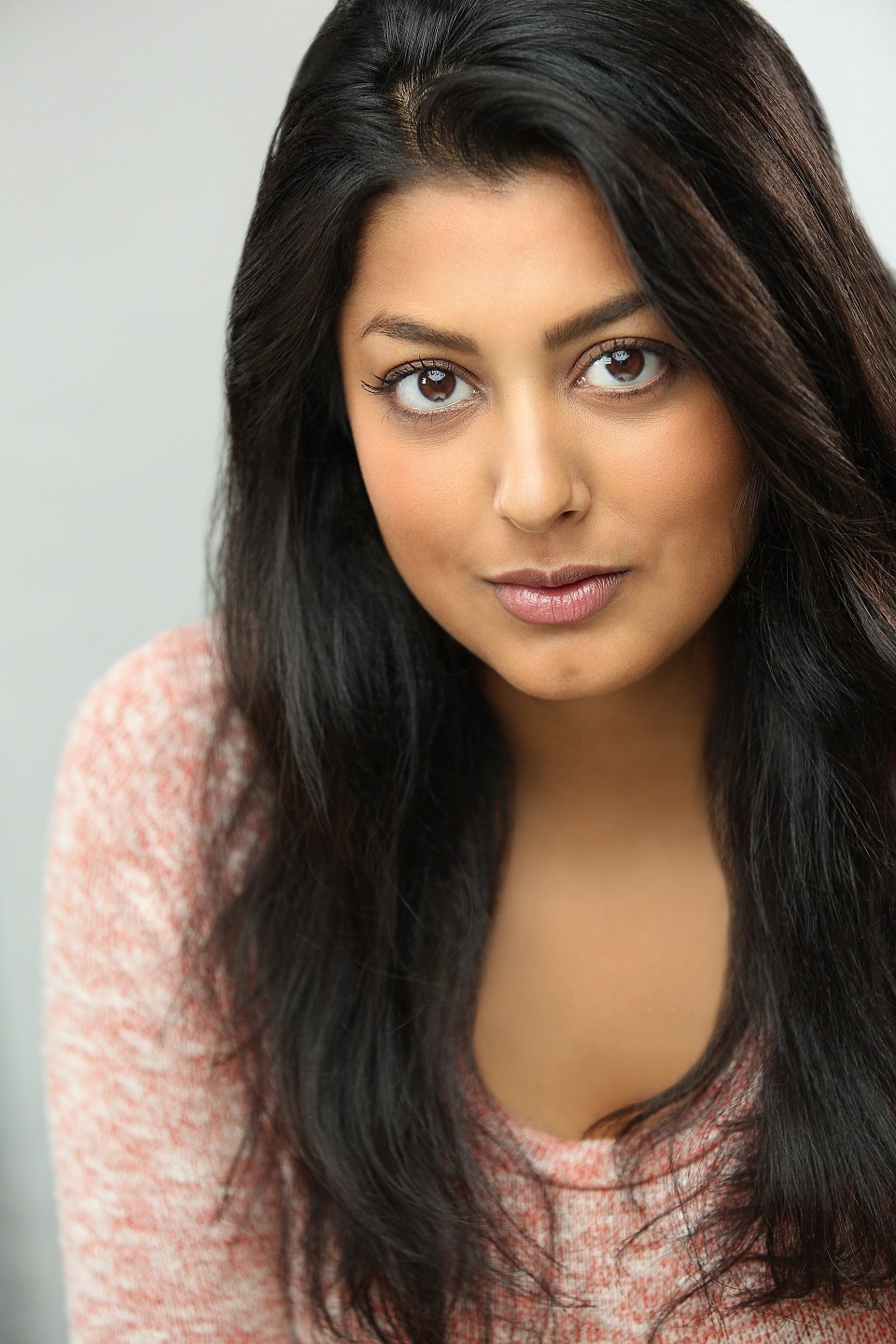We’re excited to introduce you to the always interesting and insightful Lipica Shah. We hope you’ll enjoy our conversation with Lipica below.
Alright, Lipica thanks for taking the time to share your stories and insights with us today. I’m sure there have been days where the challenges of being an artist or creative force you to think about what it would be like to just have a regular job. When’s the last time you felt that way? Did you have any insights from the experience?
What would it be like to have a regular job? If I’m being honest, I have had this thought a LOT in my almost-20 years of being an actor professionally. Stability – job security, a steady paycheck, the ability to build savings, guaranteed benefits like health insurance, etc – is an incredibly attractive concept for the freelance artist. I imagine a lot of artists can relate. I find myself thinking about “giving it all up” when I’m in between jobs, when I’ve had a long stretch of great auditions with no bookings, when I’m doing yet another reading or workshop that won’t even cover the cost of groceries for the week…I just gave birth to my first child, and when I think about how my partner and I are supposed to raise a kid and maintain our lifestyle in New York City as two creatives, it often sends me into a full-blown panic. We both furiously worked as much as we can just so we could build up our savings to not feel pressure to look for work for the first few months of our kiddo’s life. What if we didn’t have to worry because we had parental leave through regular day jobs??
But then…parental leave isn’t a guarantee in this country. I have friends who were given 4 weeks paid leave and then they had to leave their newborns and go back to their jobs. Maybe being a freelancer is a gift, of sorts – I get to decide how much leave I want. I am in control of when I work and when I don’t. I also find myself wondering…what else would I do?? One of the things I love about being an actor is how nothing is the same day after day; I would likely be bored to tears at a “regular” job (the kind that can give financial stability), with a desk and clients and rote tasks, sitting at a computer, staring at a screen hour after hour. The idea of NOT being a storyteller is also terrifying because it brings me such validation and fulfillment and joy. Those new play development workshops and readings feed my soul, and I fall in love with collaboration, script analysis, character creation all over again. Meeting new people and building community all over the country when I travel for regional theatre gigs lifts my heart when the real world feels dark. At the end of the day, I love what I do. It’s a privilege to wake up every day and really LOVE going to work. That, for me, is enough.
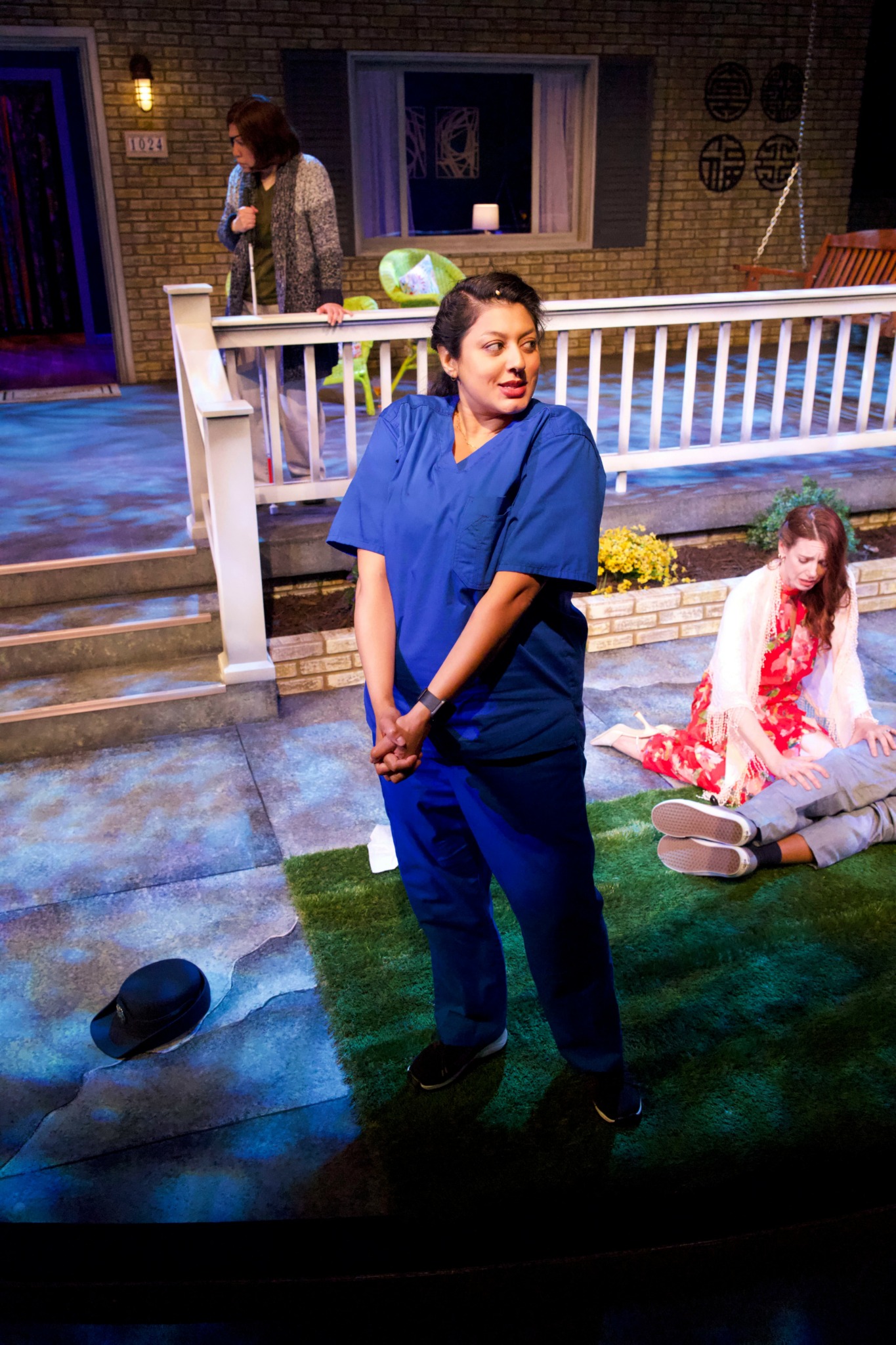
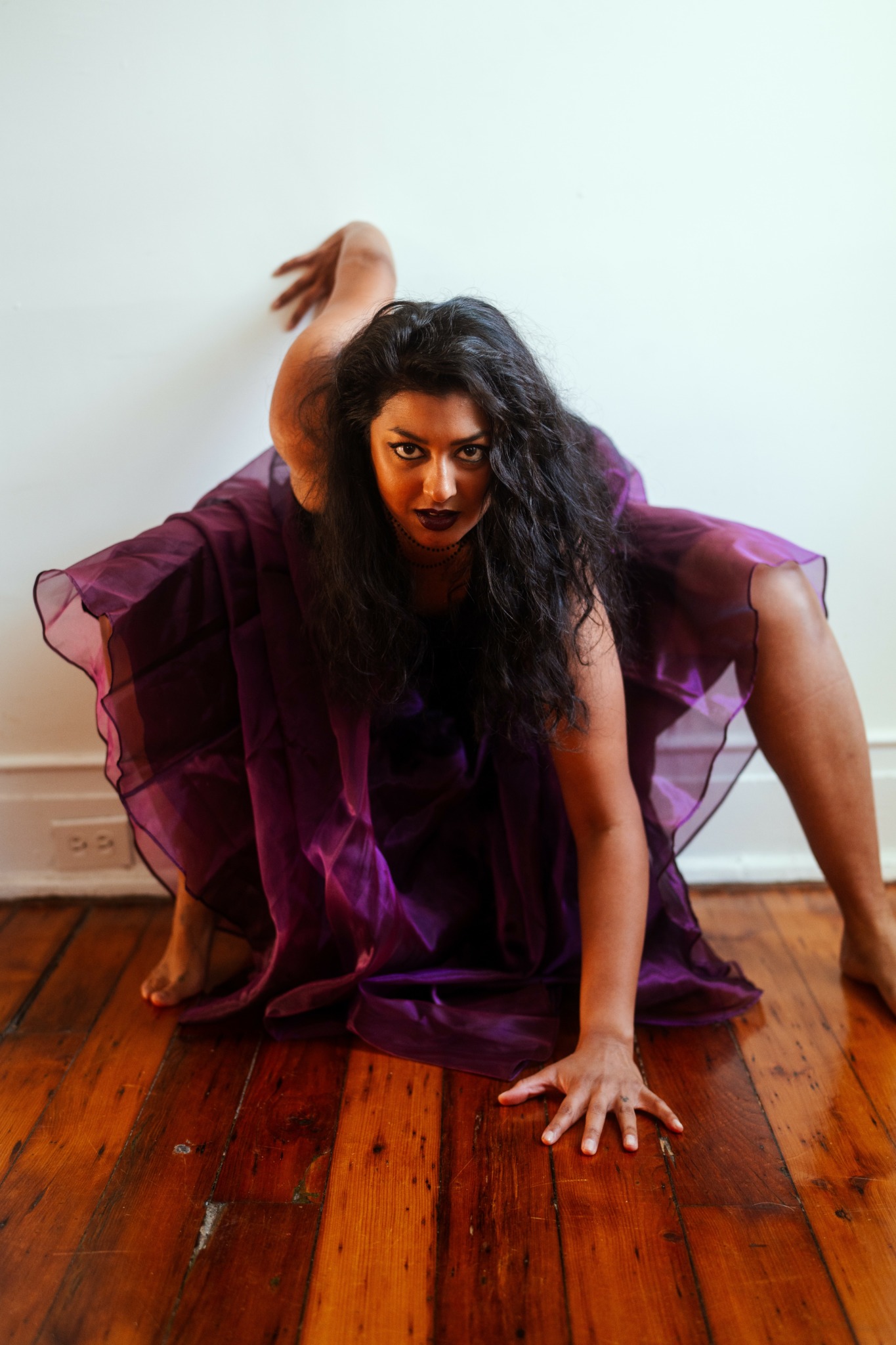
As always, we appreciate you sharing your insights and we’ve got a few more questions for you, but before we get to all of that can you take a minute to introduce yourself and give our readers some of your back background and context?
I’m Lipica Shah, and I’m an actor, voice actor, audiobook narrator, and inclusion advocate based in the Bronx. I was born in a small town in Indiana and raised in a small town in New Jersey, where for over a decade I studied classical singing technique at Westminster Conservatory while actively avoiding performing in public (too many eyeballs staring back). Thanks to a double-doggy dare, as a high school freshman I auditioned for and then was surprised to be cast as The Witch in the spring production of Into the Woods – a dream role before I even knew what a dream role was.
Suddenly I found myself in love: with research and character preparation, with storytelling (yes, for all those eyeballs in the dark), and most of all with the merry band of weirdos who make theatre – my found family. I earned a BFA at New York University’s Tisch School of the Arts, got baptized as a New Yorker in puddle water from a passing taxi, and have been working steadily ever since!
I thrive on collaboration in all mediums and have a special passion for new play development. Over the years, I’ve had the privilege of originating roles at Manhattan Theatre Club, The New Group, Mixed Blood Theatre Company, Cal Shakes, and American Conservatory Theater, among many others. On screen I’ve appeared in shows on ABC, CBS, FOX, NBC, HBO, Showtime, USA, Comedy Central, and Netflix, most recently recurring on HBO’s “The Girls on the Bus.” I also love being behind the microphone and am grateful to work in a wonderful community of voiceover artists, specializing in English dubbing and audiobook narration. You can hear me as the narrator in the New York Times bestseller “The Fall of Roe: The Rise of a New America” and the recent release “Slow Violence: Confronting Dark Truths in the American Classroom” (among many others!), in the video game “Starfield” and English dubs of “Pokémon Horizons,” “Pokémon,” “A Silent Voice,” “Mobile Suit Gundam: The Origin,” and so many others.
As an inclusion advocate, I am proud to loudly demand change in my industry – inclusion, representation, visibility, and authenticity – in the choices I make as an actor and through two additional avenues: 1497 and AAPAC. In 2020 I co-founded the nonprofit 1497, an organization committed to supporting and uplifting artists of South Asian descent and challenging their historical exclusion from and underrepresentation in the American film and television industry. I’m also on the Steering Committee of The Asian American Performers Action Coalition (AAPAC), whose mission is to expand the perception of Asian American performers in order to increase their access to and representation on New York City’s stages, and with whom I received Tony Honors for Excellence in the Theatre in 2022.
In my spare time, I’m proud to be a National Volunteer Partner for Girl Scouts of the USA and active #UnionStrong member of AEA and SAG-AFTRA, and I enjoy traveling, birdwatching, lighting one-match campfires, doing crossword puzzles in pen, and running for inordinate amounts of time outdoors. Visit www.LipicaShah.com to learn more!
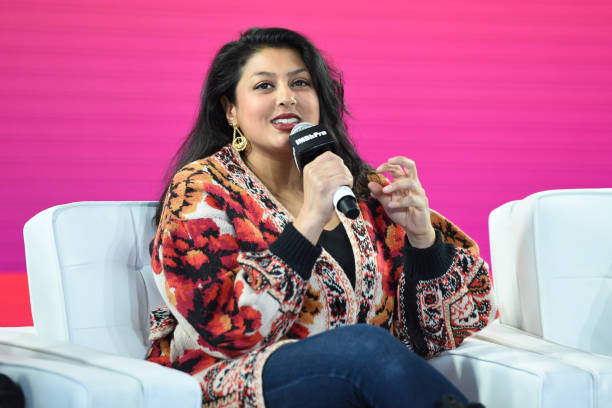
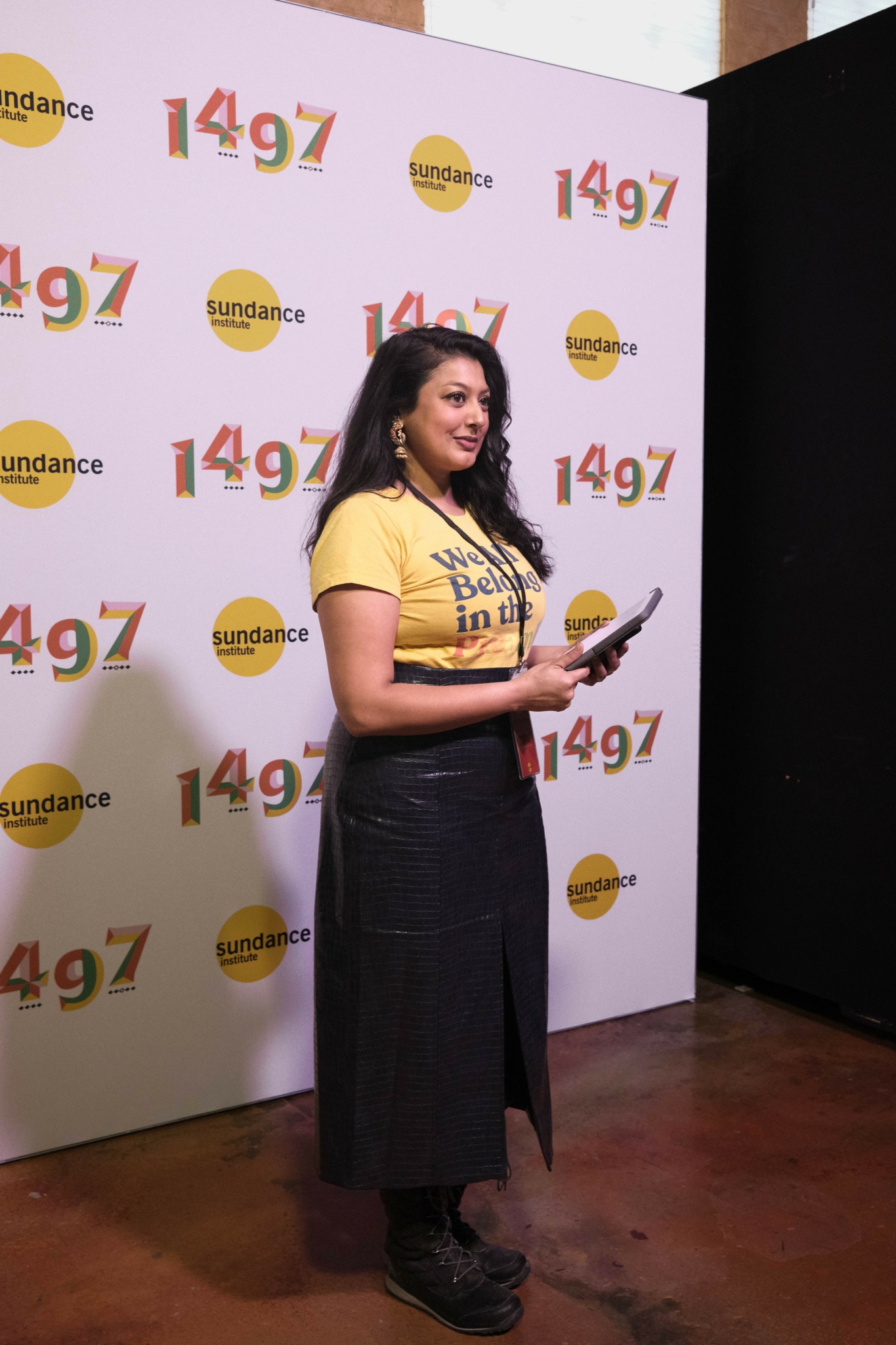
Learning and unlearning are both critical parts of growth – can you share a story of a time when you had to unlearn a lesson?
I cannot speak for anyone else’s experience in acting school, but I found it…challenging. There were many moments where I was convinced (primarily because many teachers told me so) that I had made a huge mistake, that I would never be an actor, that I should just drop out and quit. I did ultimately stick with it and graduate, but the scars from that period of my life ran deep. One lesson it took me MANY years to unlearn is the idea that as an actor, my job is to say “yes” to everything, that I should be grateful for every opportunity and not question what’s being asked of me. It took a long time – and finding myself in too many distressing situations – for me to realize how dangerous and irresponsible that idea is! My wake up call came when I was on a shoot for an Indie film. We had just wrapped a scene and another female actor and I were in a room changing into the outfits for our next scene. Suddenly the door opened and a male producer holding a phone walked in. We were half naked, and he told us to smile for the “fans” – we were being live-streamed. I initially thought he was kidding and tried to make a joke out of the situation, while trying to cover my body with my hands. His expression quickly darkened and he said, “you signed a contract. I own your image. I can do whatever I want with you.” He eventually left and the other actor and I somehow got through the rest of the shoot day. But once home at the end of the night, I was suddenly full of rage.
Why had I stayed and finished out the shoot day?! Because I had been programmed to believe that I have no power as an actor, that I was lucky to have that job.
I quit the film.
That day (and all the unfortunate days that came before it) I finally realized that yes, I am an actor, but that means I am a human being, not a puppet; if I am uncomfortable in a situation (for example), it is 100% okay to walk away from that situation or at least ask questions about why I’m being asked to do a certain thing that feels unsafe physically, mentally, or emotionally. Knowing my own limits and boundaries actually makes me a stronger actor, because it means I know myself. It allows me to be present for my work, not worried about my environment and the people I’m working with. It contributes to my stamina and longevity in the industry. And if someone is upset with me for speaking up? Well that says more about them than it does about me – those aren’t the people I want to be working with or the stories I want to be telling.
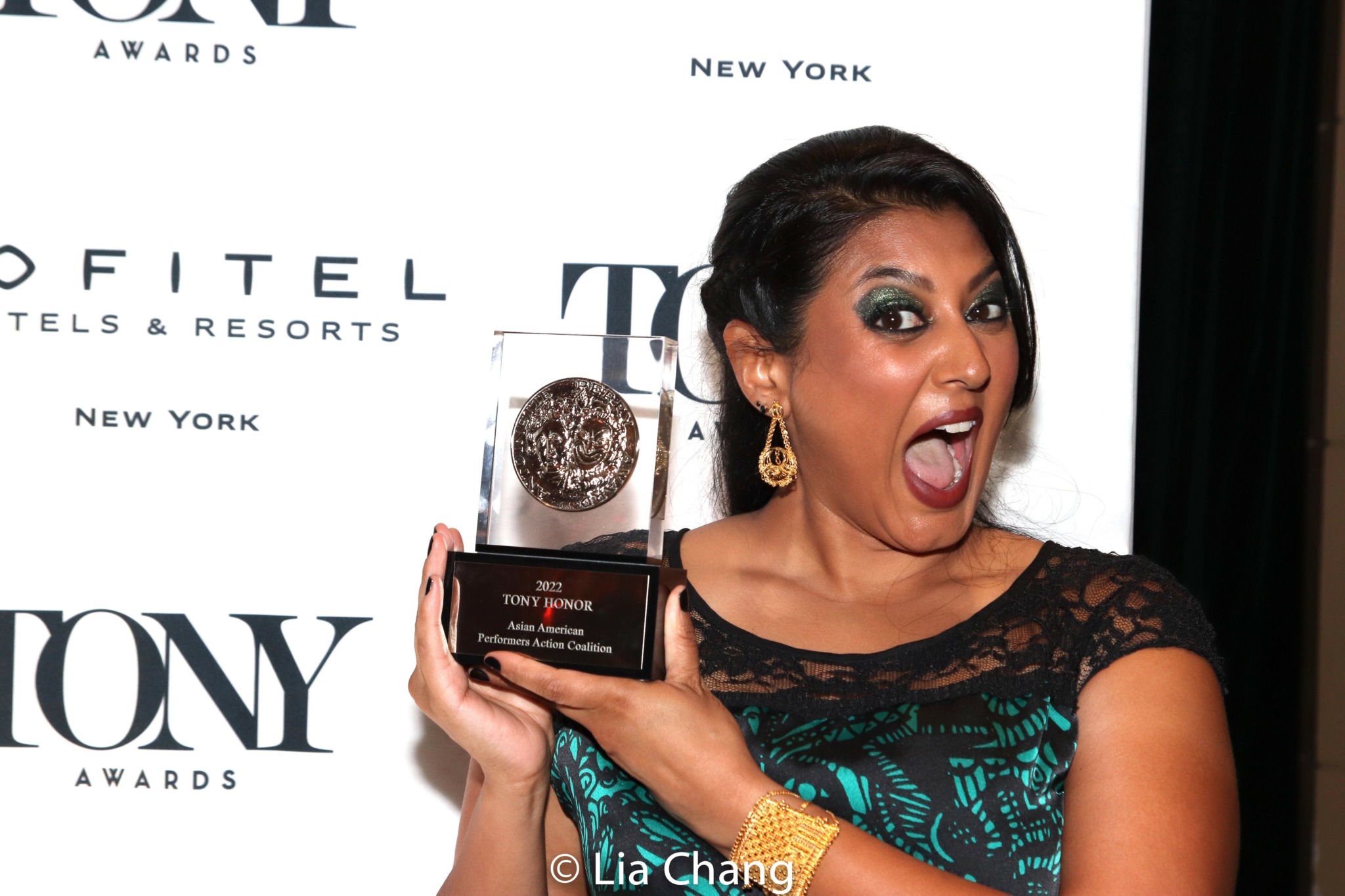
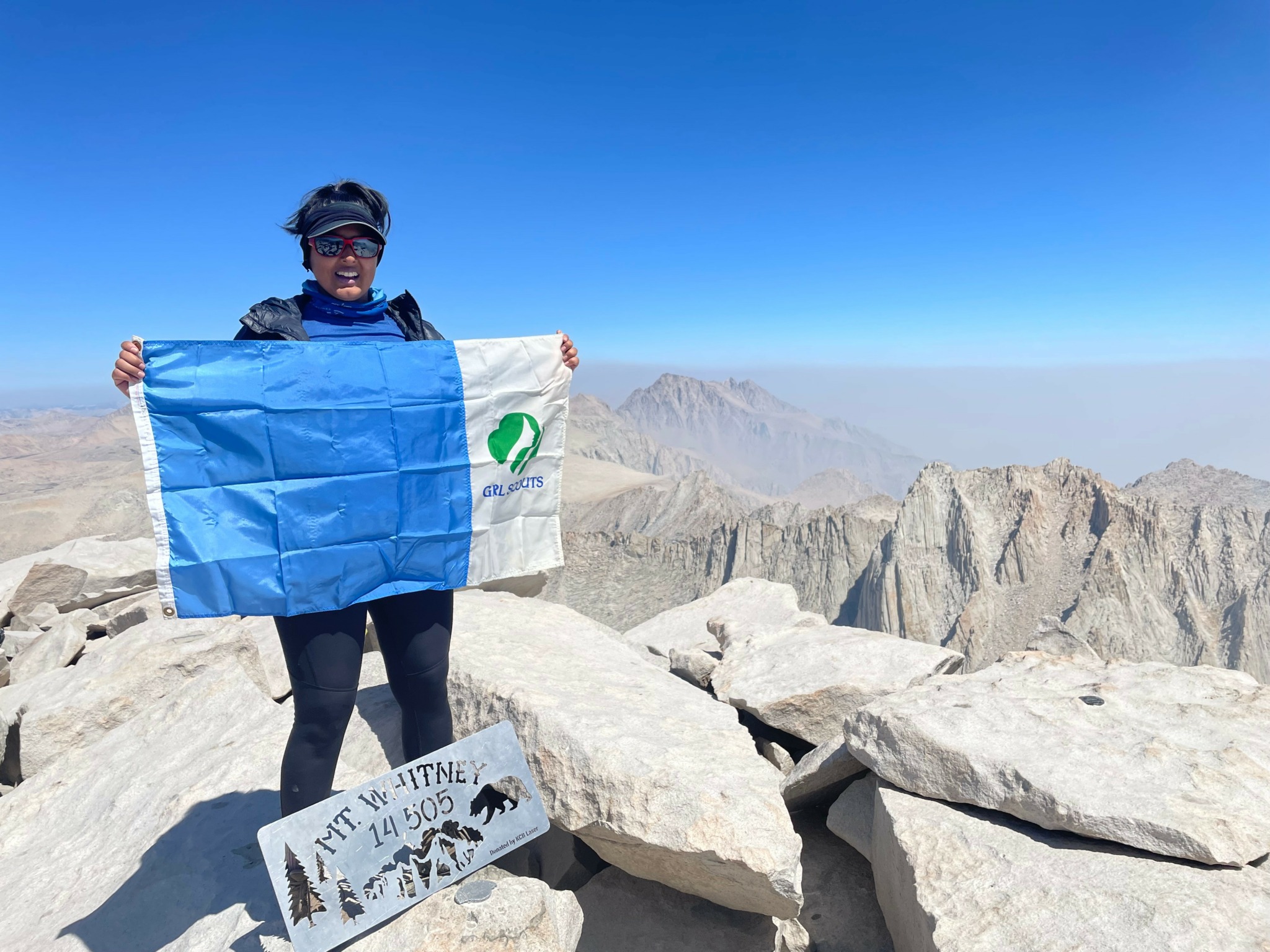
What do you think is the goal or mission that drives your creative journey?
If you’d asked me this question when I was first starting out almost 20 years ago, I’d have given you a very different answer. I’m grateful to have gotten older and wiser and more in tune with myself as a person and artist; I’m much more sure of the kind of artist I want to be now.
I have a few goals as an actor-advocate these days:
1) to define success for myself. To me, success looks like enjoying going to work every day. It looks like working steadily because of my reputation and what I bring to the room. It looks like getting to tell stories that excite me, stories that resonate deep in my soul. Bonus points if I get the privilege of working with Good People while telling these stories!
2) to feed my soul as much as my wallet. I can never forget that being an actor is my business, and sometimes I have to make business decisions – like sometimes I will say yes to a job that isn’t creatively fulfilling because one day of work will pay my mortgage for the month. But I only want to take those jobs every now and then so that I never feel like I have to say no to jobs that aren’t as financially lucrative but that will be creatively fulfilling. You can’t put a price on feeding your soul.
3) to uplift my community. In my work as an inclusion advocate, I am a big fan of casting a wide net, of building a bigger table so more people can be invited. I do not subscribe to the “scarcity mindset,” the idea that “there can only be one” South Asian or Asian or female or *insert identity here* so we should all compete against each other and tear each other down. The way I see it, if one person in my community experiences success, it is a success for us all and should be celebrated. That doesn’t mean I won’t fight for people in my community – or communities – to have bigger and better and more diverse opportunities. I do want to see more three-dimensional representation of historically underrepresented populations. I do want stories from traditionally marginalized communities to one day be considered “universal” too. That’s why I do the work I do.
Contact Info:
- Website: https://www.LipicaShah.com
- Instagram: @LipicaShah
- Facebook: @LipicaShahActor
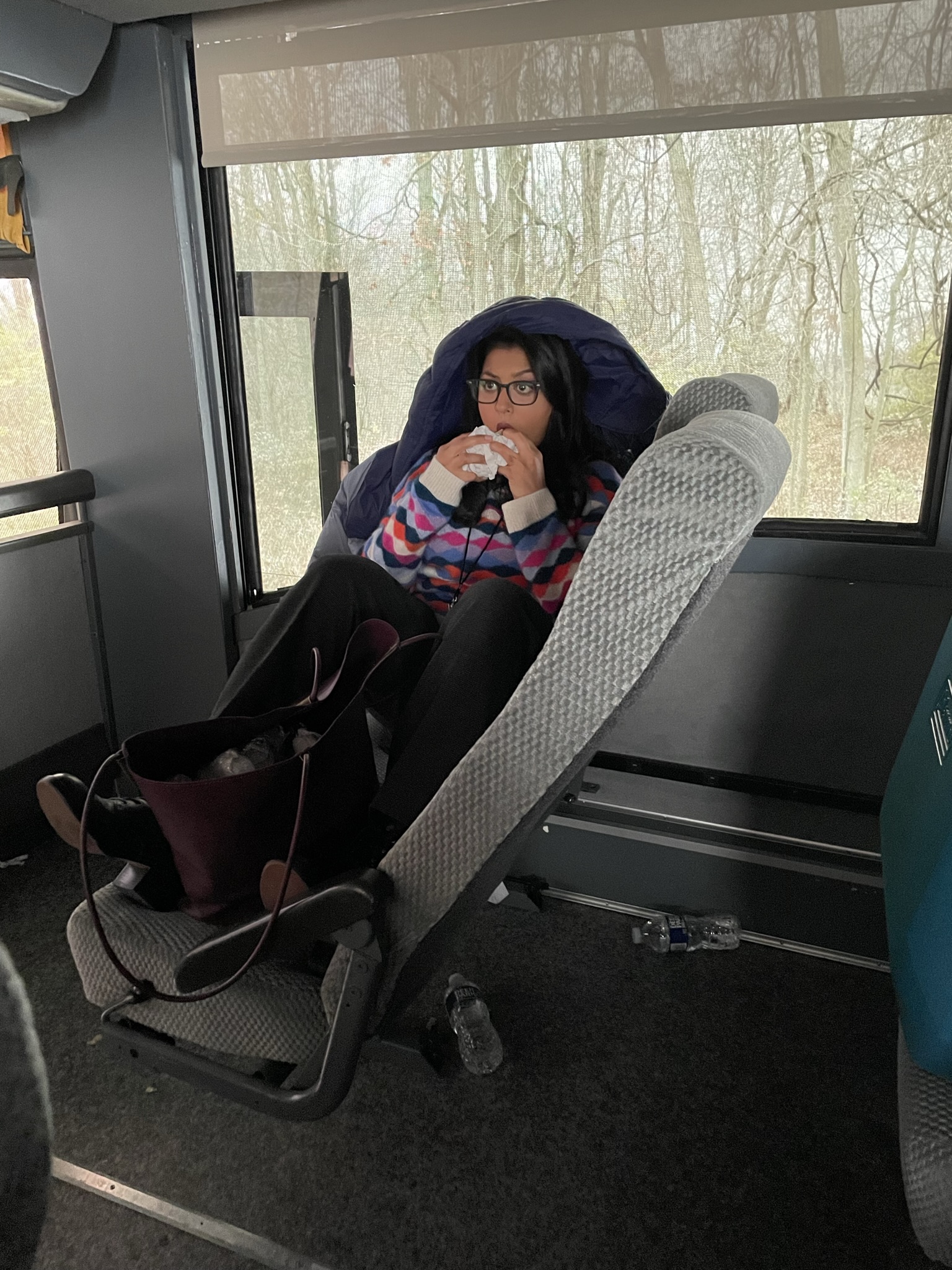
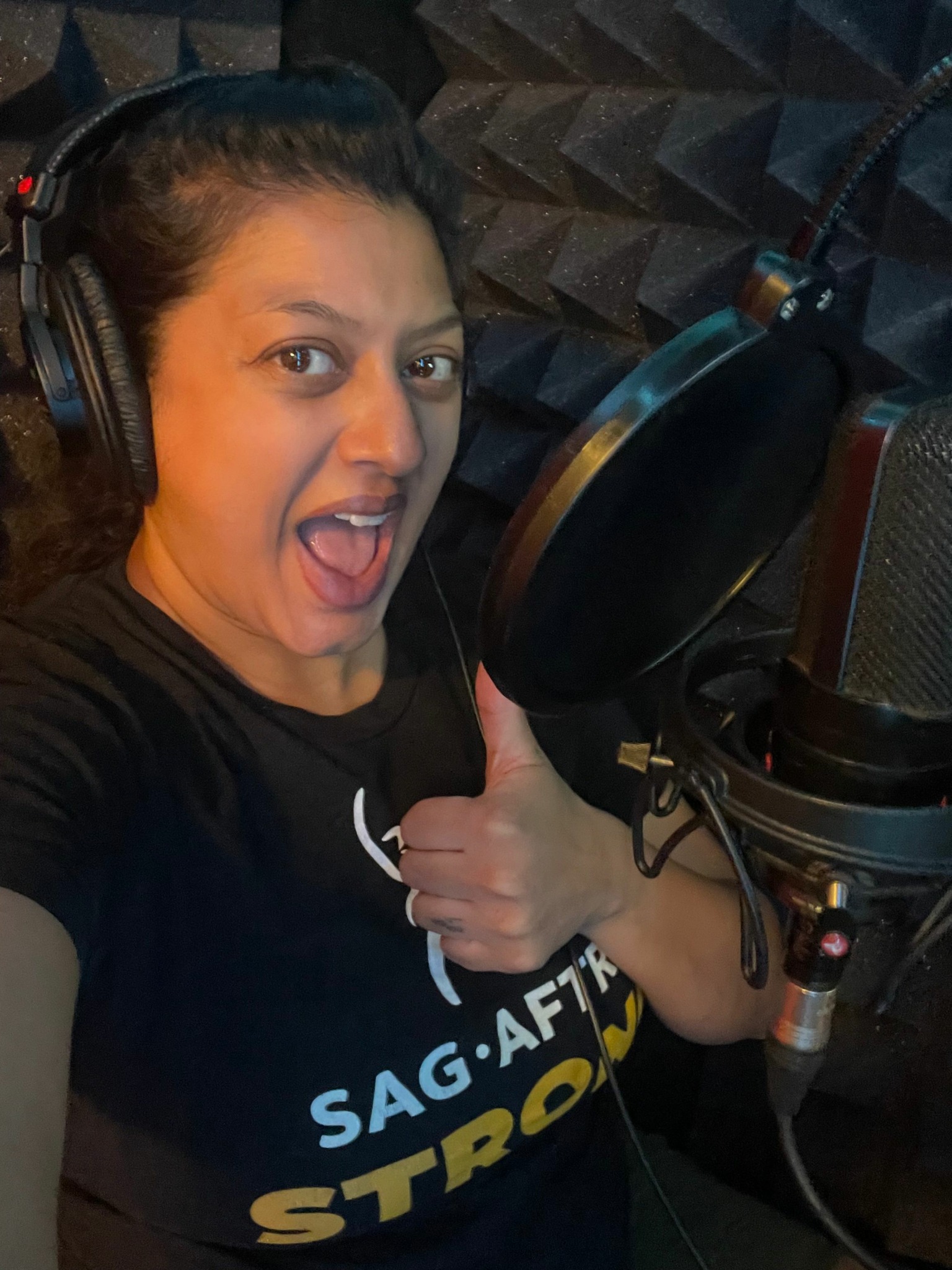
Image Credits
Matthew Murphy of MurphyMade Photography (main photo); Judd Plattenburg (_DSC5349); Milkman Photography (ACTORS THEATRE DRAC-1ST RELEASE-30); Monica Schipper (IMG_1689.JPG); Sarowar Ahmed (100V3867.jpeg); Lia Chang Photography (2022-6-6. photo by lia chang-299.JPG)


